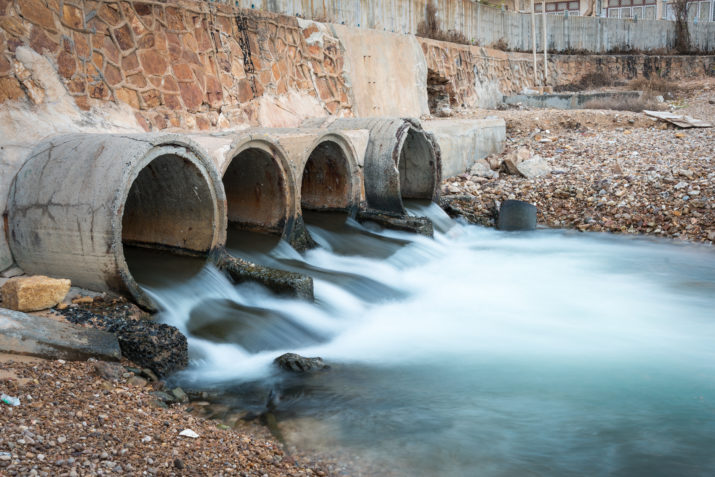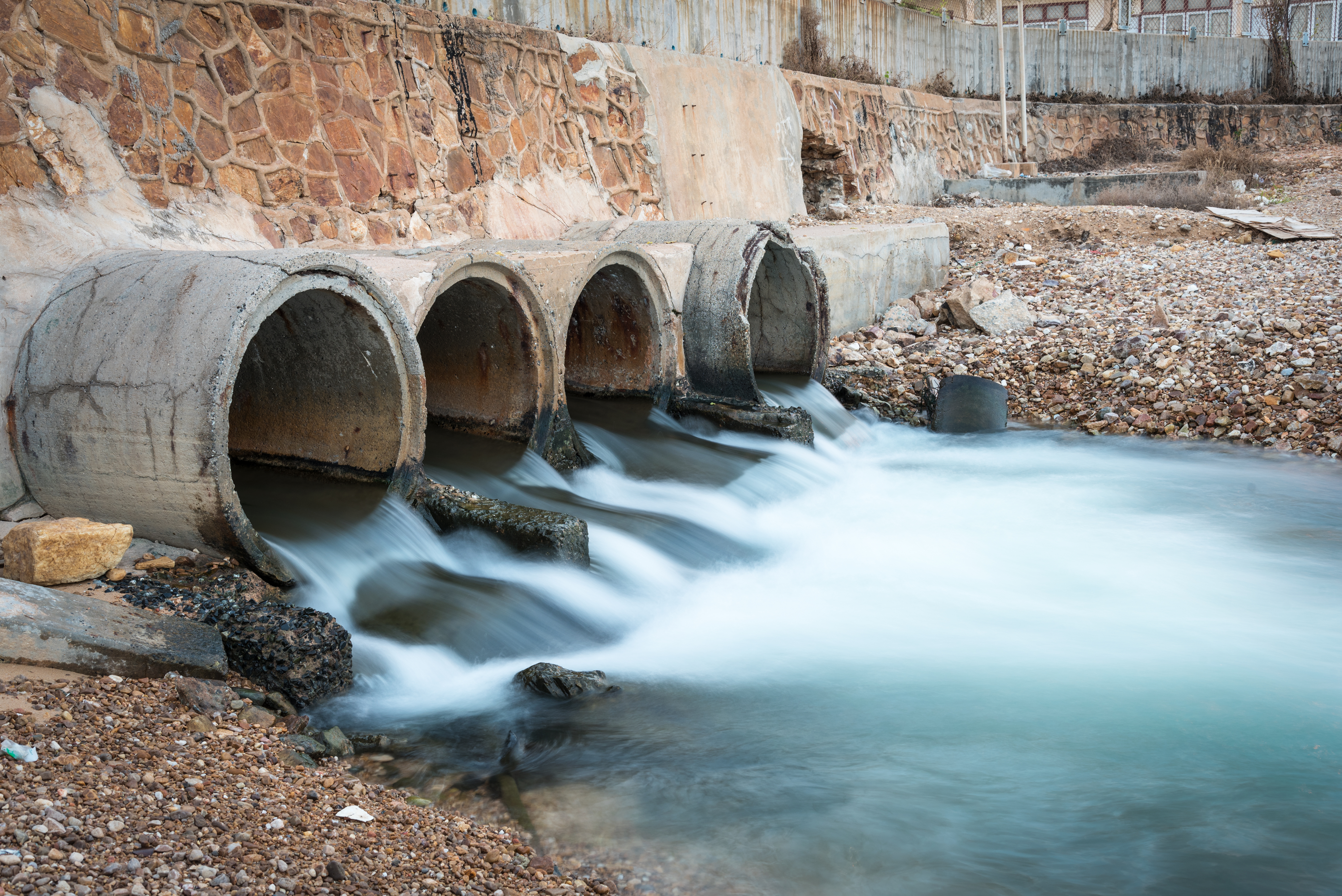

This is part of our Campus Spotlight on the Global Water Initiative at the University of Virginia.
Catalog Description: “Emphasizes the management of stormwater quantity and quality, especially in urban areas. Course includes impacts of stormwater on infrastructure and ecosystems, hydrologic and contaminant transport principles, stormwater regulation, structural and non-structural stormwater management approaches, and modeling tools for stormwater analysis and management.” My course will emphasize projects and real world context.
Prerequisite: CE3220 Water Resources Engineering (or EVSC 3600) or instructor permission
Learning Objectives
Students in the course will:
- learn to estimate stormwater volumes and pollutant loads in real systems
- develop insight into the regulatory, political, social, economic and environmental drivers of stormwater management,
- explore emerging challenges and methodologies in stormwater and develop educational experience for other students
- use appropriate software for analysis and presentation
- and learn to evaluate runoff risks and design a component of a stormwater management system
Homework
Homework will include feedback from guest speakers, problems sets, and small modeling and/or design assignments. In some cases, class time may be allocated to this ‘homework’. Homeworks may include the following: Stormwater Overview, Grounds Response, Pipe Design, Loading, TR55, SWMM, and best management practice (BMP) finder and designs. Some assignments will be completed in pairs or teams. Assignments should be assumed to be ‘individual’ assignments unless specified otherwise by the faculty member.
Professor Individual/Team Quizzes
Some topics will be introduced with guided readings, followed by in-class quizzes. Quizzes will be taken twice; first as individuals and then in small teams. You will receive the average of the two scores. There will be four or more such quizzes during the semester. This format has multiple educational advantages:
- all students are motivated to complete readings and other preparatory assignments outside of class & less pure lecture time is required
- multiple small quizzes creates a low stress testing environment
- working in teams, all students are likely to have a solid understanding of material at the end of the quiz
- most importantly, research has shown this approach more effectively helps students learn than standard lectures.
If you must have an excused absence for a quiz, you will be allowed to take the individual portion, but for that quiz, you will lose the opportunity to average your individual score with your group score.
Topical Project and Activities
In small teams, students will explore emerging topics or techniques related to stormwater. Each team will be responsible for a day of class. The team must select an appropriate reading for the class, and plan an educational experience for the class. The experience must include a gradable in-class activity. This could be an individual/team quiz or an activity to complete in-class and submit. Topics may include the following:
- Agricultural Runoff and Management
- Stream Restoration
- Combined Sewer Overflows
- Stormwater and Climate Change
- Construction Erosion & Sediment Control
- Nutrient Trading Systems
- Ultra-Urban BMPs
- Site Planning (VA Environmental Site Design)
- Stormwater Modeling: Beyond SWMM
- Ice & Snow and Roadway Runoff
- Fair and Effective Stormwater Utilities
- Stormwater Design and Karst
- Stormwater Design and High Water Tables
Assessment and Design Project
Teams of students will be assigned a small set of properties within the county. Teams will assess the properties for their relative need for stormwater improvements and the overall impact from a technical and social perspective of making those changes. Teams will then select one of their properties and perform stormwater retrofits, including the design of at least two appropriate BMPs. Geographical information systems (GIS), stormwater modeling and computer-aided design (CAD) will be used within the course of this major project.
Participation
It is my objective to creative an active and effective learning environment. Learning requires your participation. Participation will be evaluated based primarily on asking and answering questions in class, and by completing in class activities. These points are collected and recorded throughout the semester. Participation will also include peer evaluation feedback from team members of major projects. Finally, your completion of required class evaluations, including completing the ‘official’ course evaluation via collab, completing supplemental course evaluation, and completing peer evaluations will be included within your participation points.
| Date | Topic | Reading | Assignment |
| Aug 23 | Class Overview | MDE Manual Ch. 1 | |
| Aug 25 | On-grounds Stormwater Management | ||
| Aug 30 | Unified Sizing Approach – Volumes | Va Manual
Ch. 10 |
Stormwater Overview |
| Sept 1 | Flow Calculations | Mays Chap 15 | Grounds Response |
| Sept 6 | Stormwater Pipe Drainage Systems | ||
| Sept 8 | Water Quality | BMP Monitoring Sect. 4.3 | Topical Project Preferences |
| Sept 13 | Event quality & sampling VRRM | VRRM Manual
Chap 1-4 |
Pipe Design |
| Sept 15 | TR-55/Project Intro | TR55 | Quiz |
| Sept 20 | GIS Analysis | Loading HW | |
| Sept 22 | TR-55 | ||
| Sept 27 | Parcel Assessment | ||
| Sept 29 | SW Modeling | TR-55 | |
| Oct 6 | SW Modeling | Parcel Assessment | |
| Oct 11 | SW Modeling | SWMM | |
| Oct 13 | Stream Restoration | ||
| Oct 18 | BMP activity | Quiz | |
| Oct 20 | Environmental Site Design | SWMM | |
| Oct 25 | Ice and Snow and Runoff | ||
| Oct 27 | BMP activity | Quiz | |
| Nov 1 | Construction Erosion and Sediment Control | ||
| Nov 3 | BMP activity | Quiz | |
| Nov 8 | Climate Change and Stormwater | ||
| Nov 10 | BMP Design | Parcel Part 2 | |
| Nov 15 | Ultra-Urban BMPs | ||
| Nov 17 | Project Work | Design HW | |
| Nov 22 | Project Work | ||
| Nov 29 | Project Work | ||
| Dec 1 | Nutrient Trading | ||
| Dec 6 | Summary | ||
| Dec 15 | “Final” | Projects Due |
Select Resources:
Cahill, Thomas H., Low Impact Development and Sustainable Stormwater Management, Wiley and Sons, Somerset, N.J., 2012. Available at http://site.ebrary.com/lib/uvalib/docDetail.action?docID=10642592 (must be on Grounds or using a secure login to Library resources)
Center for Watershed Protection and Maryland Department of the Environment, (2009, 2000), Maryland Stormwater Management Design Manual (2009 revisions), Baltimore, Maryland. Available at http://www.mde.state.md.us/programs/Water/StormwaterManagementProgram/MarylandStormwaterDesignManual/Pages/Programs/WaterPrograms/SedimentandStormwater/stormwater_design/index.aspx, as of August 2012
Geosyntec Consultants and Wright Water Engineers, 2009, Urban Stormwater BMP Performance Monitoring, US EPA, WERF, FHA, and EWRI, available at http://www.bmpdatabase.org/monitoring-guidance.html as of August 2016
International Stormwater Best Management Practices database, www.bmpdatabase.org
Hydrometerological Design Studies Center – Precipitation Frequency Data Server (PFDS), NOAA National Weather Service, http://hdsc.nws.noaa.gov/hdsc/pfds/index.html, as of September 2016
Simpson, T., and S. Weammert, 2009, Developing Best Management Practice Definitions and Effectiveness Estimates for Nitrogen, Phosphorus, and Sediment in the Chesapeake Bay Watershed, Final Report, University of Maryland Mid-Atlantic Water Program
Virginia Stormwater BMP Clearinghouse, http://www.vwrrc.vt.edu/swc/index.html, Virginia Department of Conservation and Recreation and Virginia Water Resources Research Center, as of August 2014.
Virginia Stormwater Handbook (Draft 2013), http://www.deq.virginia.gov/Programs/Water/StormwaterManagement/Publications.aspx
Virginia BMP Standards and Specifications (Draft 2013 ) (http://www.deq.virginia.gov/Programs/Water/StormwaterManagement/Publications.aspx)
These are syllabi of water courses or courses with significant water content from colleagues affiliated with the Global Water Initiative at the University of Virginia.
Photo: Water drainage | Shutterstock
Published on December 11, 2018.




